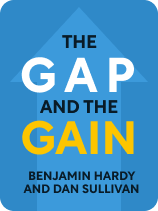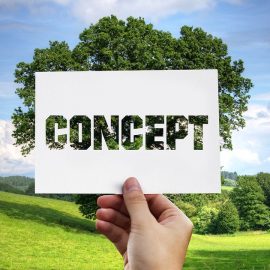

This article is an excerpt from the Shortform book guide to "The Gap and The Gain" by Benjamin Hardy and Dan Sullivan. Shortform has the world's best summaries and analyses of books you should be reading.
Like this article? Sign up for a free trial here .
What are some good ways to practice gratitude? What difference can it make in your life?
The Gap and The Gain describes two ways of thinking that measure your progress in life. Gap-thinking is focusing your thoughts on the “gap” between where you are now and where you want to be. Gain-thinking is focusing on how far you’ve come, or the “gains” you’ve made. The authors believe that practicing gratitude is a great way to stay in the Gain mindset.
Keep reading to learn three gratitude exercises that can help you maintain your focus on Gains.
3 Gratitude Exercises
Gratitude keeps you in the Gain mindset by keeping your mind oriented around what you have instead of what you don’t have. Hardy and Sullivan strongly recommend keeping a journal so you have an objective record of your past self against which you can compare your current self. The authors propose the following three gratitude exercises as examples of journaling techniques.
Exercise 1
Actively contemplate the gains you’ve made over various spans of time (for example, what gains have you made over the past 10 years? Three years? One year? Six months?). Write down these gains so you can see your concrete progress.
Exercise 2
At the end of each day, write down three gains you’ve made that day (for example, “I walked over 10,000 steps today” or “I cleaned out half of the garage”). This way, you are actively and consistently orienting your mind around your personal growth and achievements, no matter how small.
| Gratitude Research Research in positive psychology strongly supports the link between practicing gratitude and increased well-being. Journaling is the most popular and straightforward method. Studies suggest that keeping a gratitude journal provides a broad range of benefits, including better job performance and improved sleep. However, some research indicates that the link between gratitude and happiness may not apply to everyone. For example, one study found that this link only existed in participants who had PTSD. Another study involved a group of middle-aged Mormon women. These women were recently divorced and used daily gratitude journaling to process their emotional pain. Results showed the treatment didn’t improve life satisfaction for any of the women. |
Exercise 3
One of the ways to practice gratitude is mental subtraction, write the authors. Take someone or something in your life that you enjoy and imagine that you did not have that thing or person in your life. Chances are, you will feel a greater appreciation for it once you stop taking it for granted.
(Shortform note: According to psychologists, mental subtraction is an exercise best done in moderation. Taking something for granted—assuming that it’s a stable and permanent aspect of your life—can sometimes be necessary to protect your mental health. For example, taking your own life for granted is an illusion—no life is permanent or guaranteed. But applying mental subtraction to your own life is a universally terrifying concept, and it can lead to feelings of anxiety and depression when done in excess.)

———End of Preview———
Like what you just read? Read the rest of the world's best book summary and analysis of Benjamin Hardy and Dan Sullivan's "The Gap and The Gain" at Shortform .
Here's what you'll find in our full The Gap and The Gain summary :
- Why you must compare who you are now to who you used to be
- Why you should focus on your past rather than your future
- How Gain-Thinking can improve your happiness, self-esteem, and physical health






